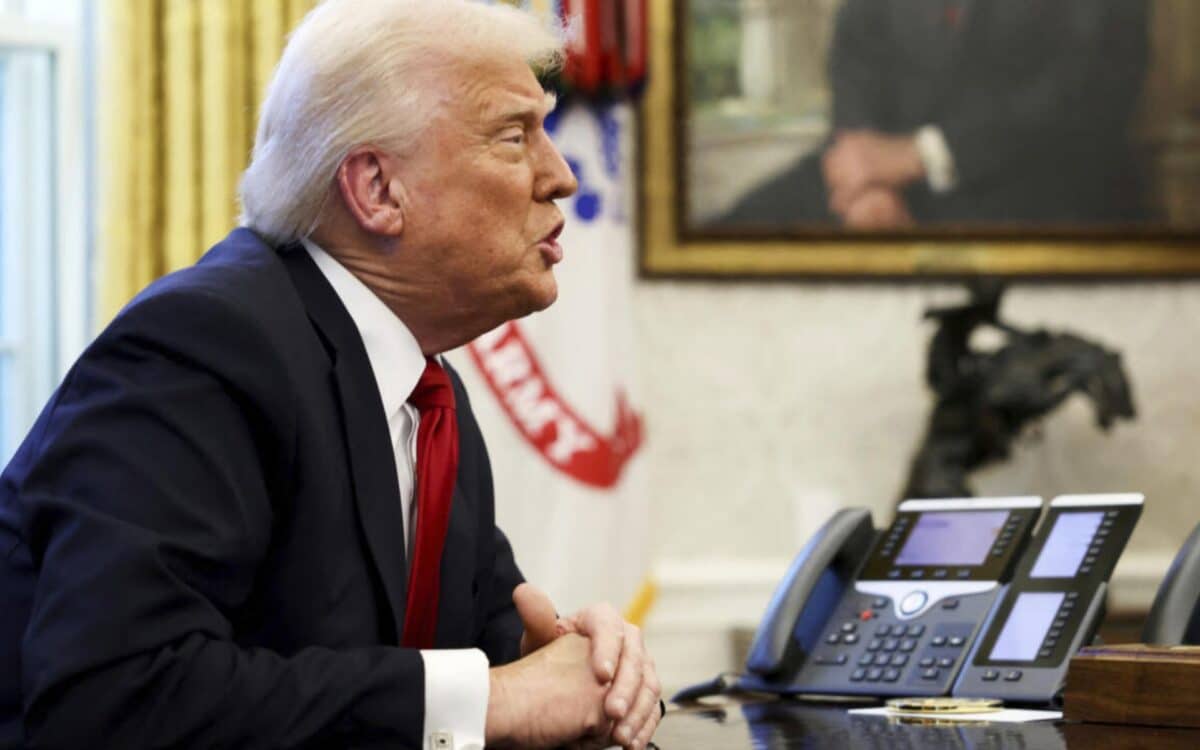US President Donald Trump recently discussed his stance on the upcoming tariffs on foreign-made cars. Speaking candidly, he stated that he “couldn’t care less” if the tariffs lead to higher car prices. These remarks come ahead of the imposition of a 25% import tax on vehicles and car parts, set to begin in early April.
According to BBC, Trump’s comments have raised questions about the impact on the automotive industry and global trade relations. The new tariffs are expected to influence both domestic manufacturing and international trade, with reactions already emerging from various world leaders.
Trump’s Stance on Car Tariffs
President Trump made it clear in his NBC News interview that he welcomed any price hikes brought about by the tariffs. He emphasized that higher prices would likely boost sales of American-made cars. “We have plenty,” Trump said, referring to the domestic car manufacturing industry. He added :
The message is congratulations, if you make your car in the United States, you’re going to make a lot of money.
He also went on to say:
If you don’t, you’re going to have to probably come to the United States, because if you make your car in the United States, there is no tariff.
Impact on the Automotive Industry
The tariffs, set to take effect next month, could have significant impacts on the automotive sector. Industry analysts have warned that the tariffs might disrupt production, particularly of foreign vehicles, and could drive up car prices in the US.
Some experts foresee a temporary slowdown in car manufacturing as businesses adjust to the new import taxes.
The tariffs were briefly implemented in March but were paused following lobbying efforts from major American carmakers like Ford, General Motors, and Stellantis, who warned that the tariffs could have a negative effect on production.
Global Reactions to the Tariffs
Trump’s tariff announcement has drawn criticism from various global leaders. The UK, Germany, France, Canada, and China have all expressed concerns about the potential repercussions.
The UK is in discussions with the US government, seeking an exemption based on the relatively balanced trade relationship between the two nations.
Meanwhile, European nations and Canada have signaled their readiness to retaliate against the new tariffs.
Germany has stated that it “will not give in,” while France’s president branded the move “a waste of time” and “incoherent.” Canada called the tariffs a “direct attack,” and China accused Washington of violating international trade rules.
Domestic Reactions and Political Ramifications
The move has also sparked reactions within the US. Some major American carmakers, including Ford, General Motors, and Stellantis, had previously lobbied for the delay of the tariffs, citing potential negative effects on production.
While Trump insists that the tariffs will strengthen the US economy, the long-term effects on both consumers and manufacturers remain uncertain. Trump mentioned that he would consider negotiating the tariffs only if other countries offer “something of great value.”









